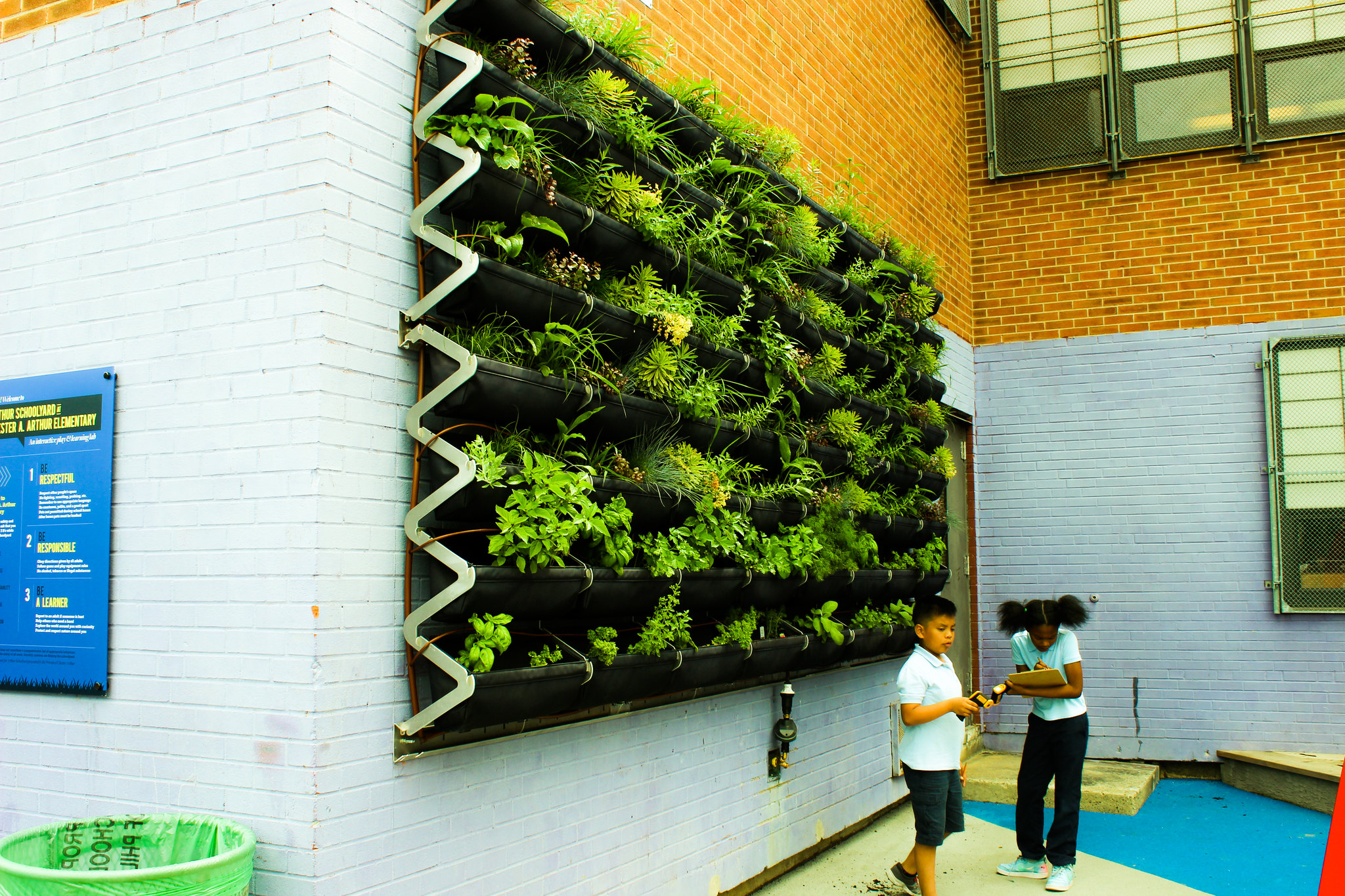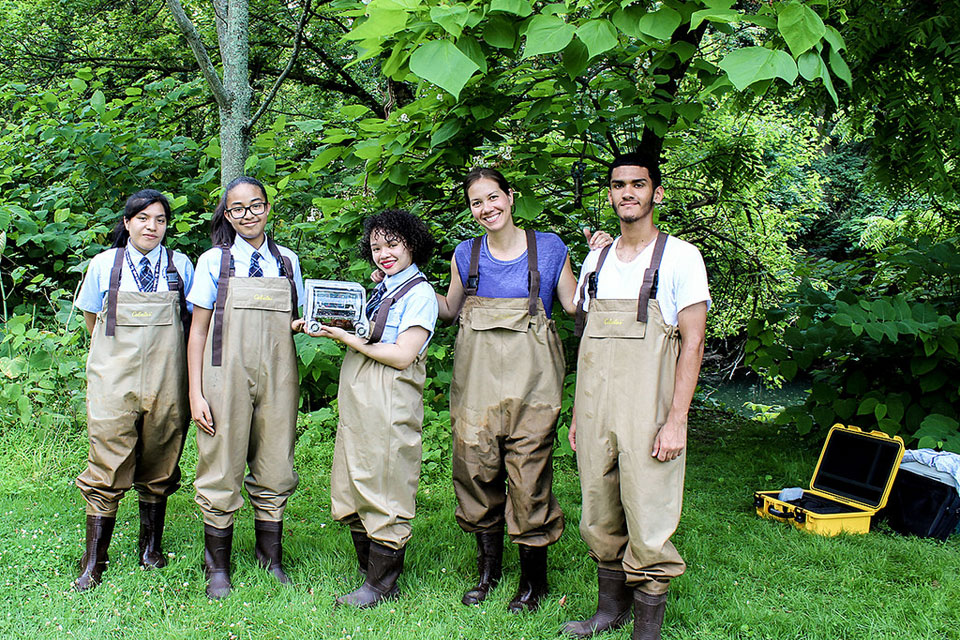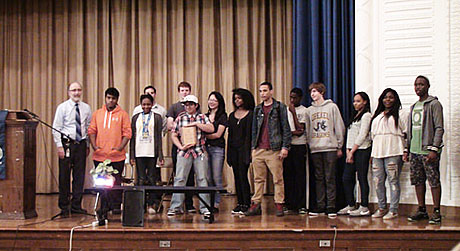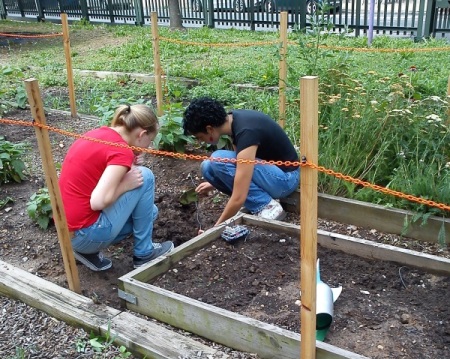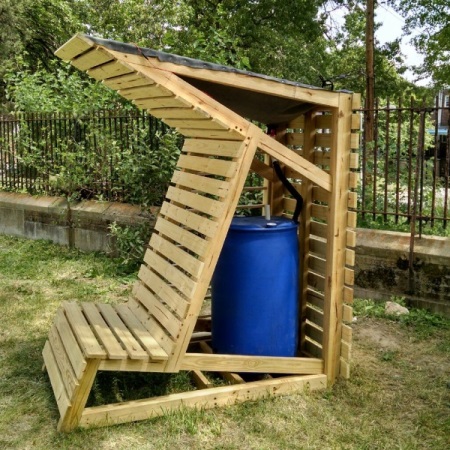
What do you get when you combine lawn furniture, green infrastructure and electronics?
This isn't a joke—this is B-Cubed a.k.a. Bench/Barrel/Boost, a multipurpose creation fusing a shaded bench, a rain barrel, and a solar-powered cell phone charging station.
Philadelphia Water teamed up with 9th grade students at Science Leadership Academy's Beeber campus and the design geniuses at Public Workshop to brainstorm and build this hard-to-miss, difficult-to-describe object, which is now installed at SLA Beeber's schoolyard.
Given the popularity of our Rain Check program, Philly already seems to know rain barrels are important—they act as small stormwater reservoirs, allowing homeowners to manage runoff from roofs and contribute to the overall goal of Green City, Clean Waters. (Read more about rain barrels and sign up to get your own free one here.) The SLA Beeber schoolyard could use a rain barrel to help with watering raised planter beds, but the school building has no exterior downspouts.
The solution? Make our own canopy to funnel stormwater into the barrel. We also imagined what other functions the funnel could perform—a hammock, a skate ramp, a planter?
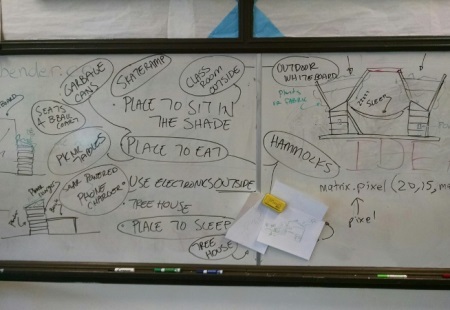
Public Workshop's Nick Nawa came up with an excellent design that incorporated some key amenities students wanted for their schoolyard: a comfortable place to hang out and a phone charger. Some students developed carpentry skills such as measuring and cutting angles with the chop saw and table saw; others assembled a prototype and final version using hand drills and a nail gun; others learned to solder the circuit boards used to charge phones from solar panels.
Creating a multi-purpose object such as B-Cubed, it turns out, requires multiple skill sets.
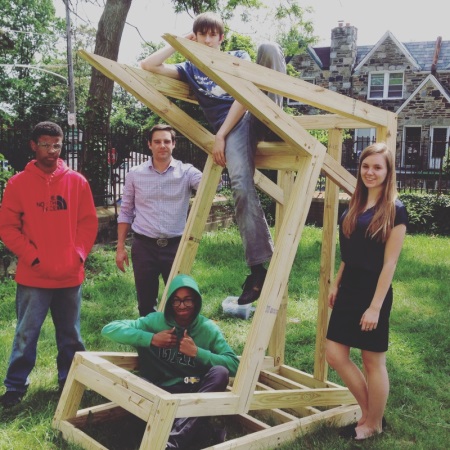
Thanks to the SLA Beeber students and staff, to Public Workshop, and to all who helped to complete this unique project. Read more about B-Cubed here and check out some of the other STEM projects Philadelphia Water has brought to city schools and classrooms through their greenSTEM Network program.
This post was written by Philadelphia Water Environmental Engineer Matthew Fritch, who helped found the greenSTEM program through Code for Philly. Fritch has helped Philadelphia students connect STEM projects and watershed stewardship through a number of innovative projects, including B-Cubed.
